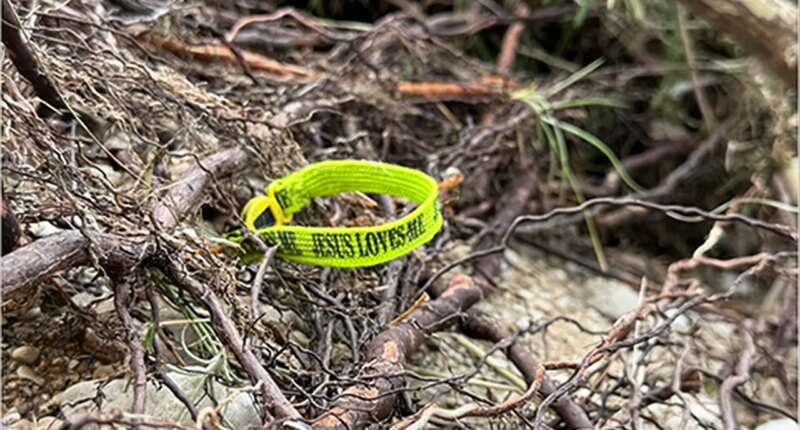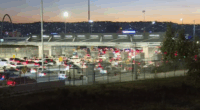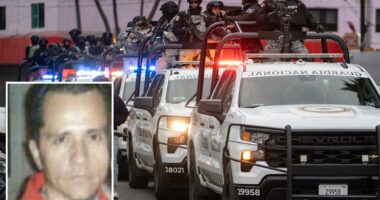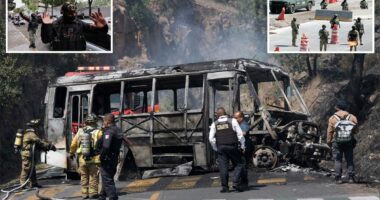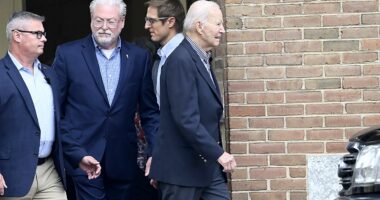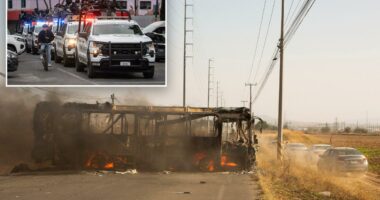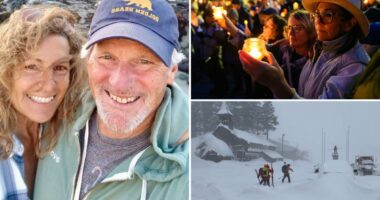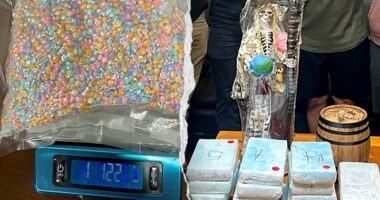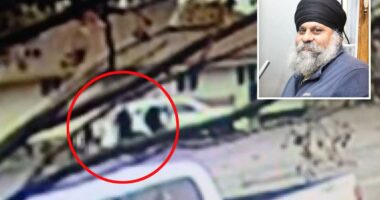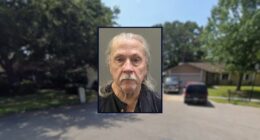Share this @internewscast.com
After witnessing their homes become unrecognizable due to severe flooding earlier this month in Kerrville, Texas, survivors are leaning on faith and each other to rebuild their lives and community.
“Our support for others is not always something we can quantify, sometimes it’s just being there for them to cry on our shoulders,” noted Capt. Juan Gomez, III, corps officer for the Salvation Army in Texarkana. “The help we provide isn’t always measurable.”
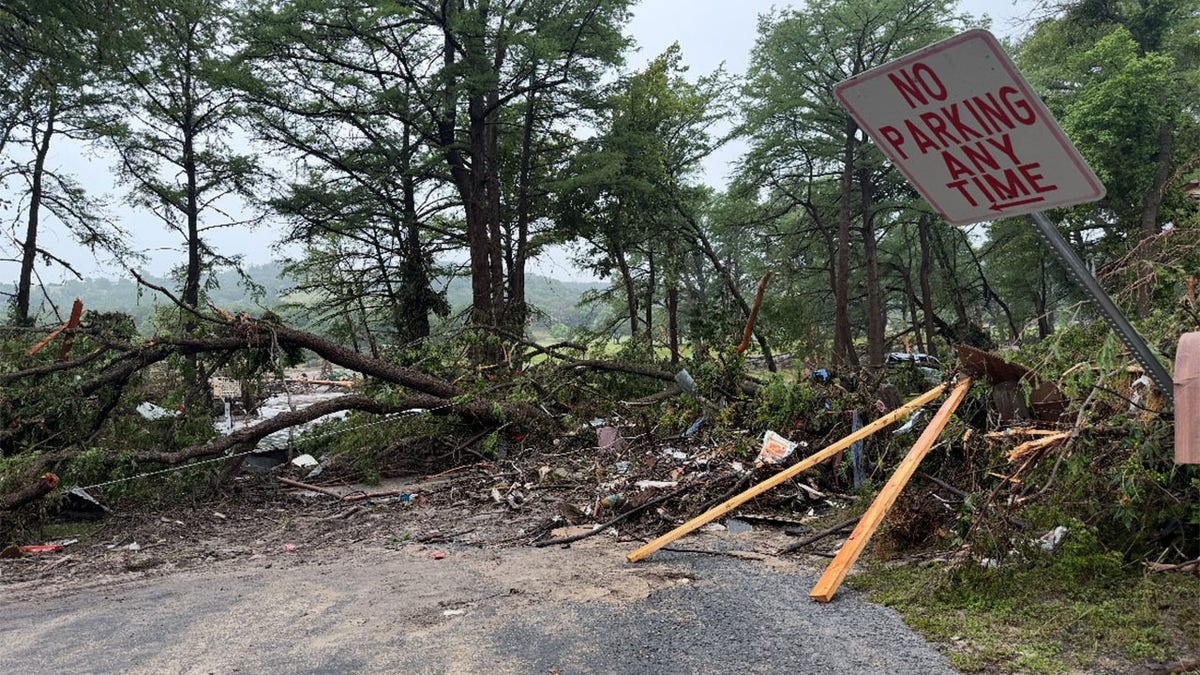
Debris is seen blocking a roadway following the devastating flood in Kerrville, Texas. (Ashton Bolton)
Last Friday, Gomez received a request to leave his duties in Texarkana, over 460 miles away, to assist in Kerrville. He accepted without hesitation, temporarily taking on the role of Emotional Care Officer to support those affected.
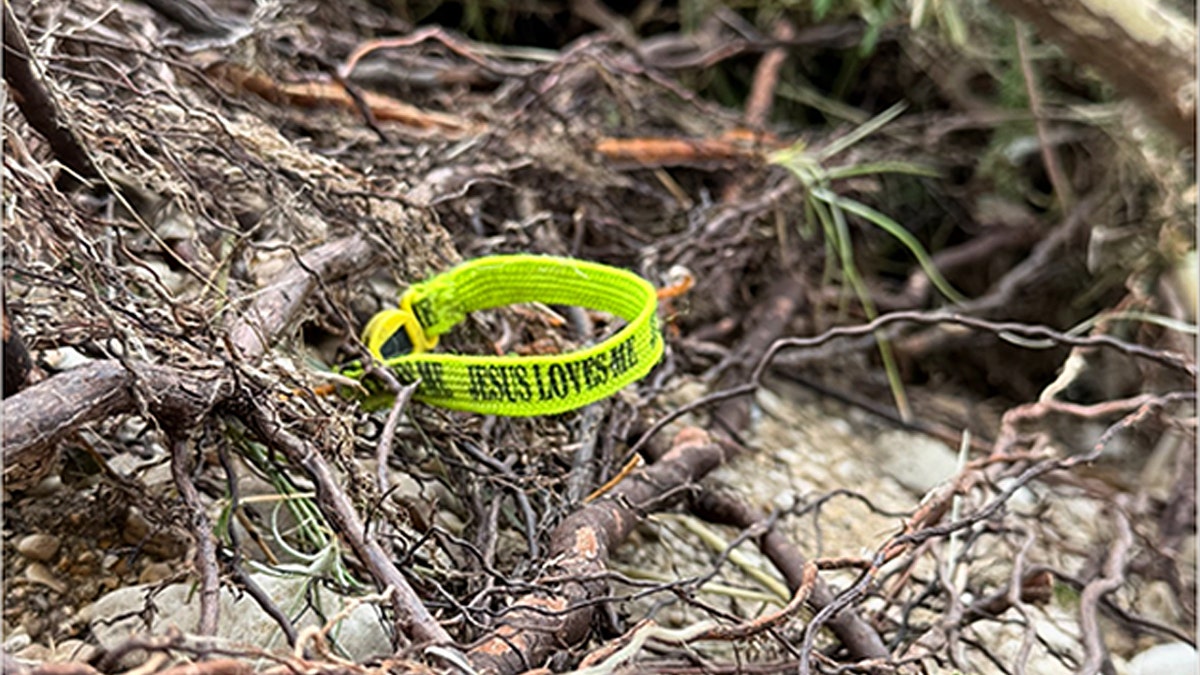
A neon-colored bracelet reading “Jesus loves me” was found after the flood in Kerrville, Texas. (Ashton Bolton)
Bud Bolton’s son, Ashton, has been reflecting on the tangible relationship that therapeutic and religious outlets have been providing to those in Kerrville and how they intertwine.
“I think it’s good that we’re having therapists reaching out towards us, but I believe that it all dwells within us and our spirituality and being able to handle our problems over to the good Lord,” Ashton said.
Ashton said he feels that if we try to fight our problems alone, we’re not getting anywhere. Just having a shoulder to cry on to release the weight of the grief goes a long way. For him, all it took was a chat with a distant relative and a hug.
“He didn’t allow me to bear the burden that I found. He didn’t allow me to do that alone,” Ashton said.
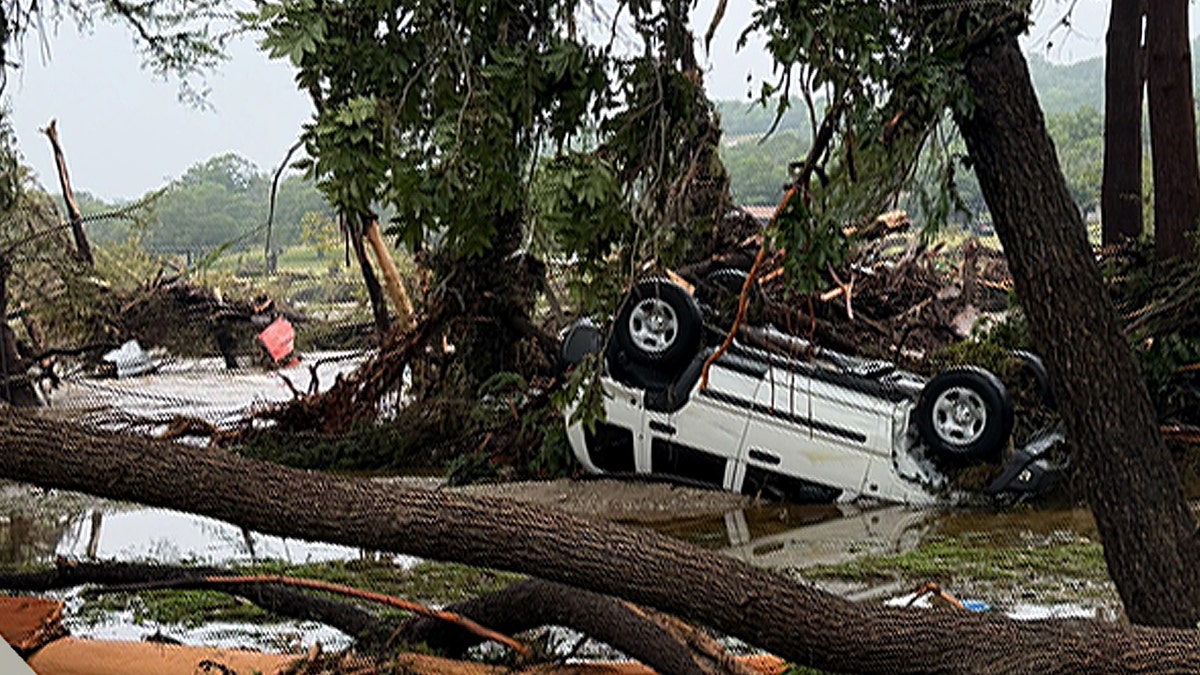
A white car is seen flipped upside down after extensive flooding in Kerrville, Texas. (Ashton Bolton)
Gomez can relate to Ashton, because he’s experienced this.
In August 1999, Hurricane Brett took over Texas, cultivating winds that reached over 194 miles per hour and causing $15 million in damage. Gomez, 16, witnessed firsthand the devastation it had on his community. When his grandmother encouraged him to reach out for support, it was his first interaction with an organization like the Salvation Army.
As he was introduced to the world of public service, Gomez was surprised. He expected to be bombarded with the typical “How are you doing?” a half-hearted question that feels impossible to answer after a devastating disaster. But that question was never mentioned. Instead, he was met with a genuineness that inspired him to stay strong.
“They gave me the support I needed to know that I still could have value in my day and to push through and to find a way to make it to the next part of my life,” he said. At the age of sixteen, I knew what it meant to serve.”
Today, he implements that lesson and uses the philosophy that there’s no blanket solution for grief. While some people may need a two-minute conversation, others could need 20. He seeks to meet people at the root of their pain, not with answers, but with presence.
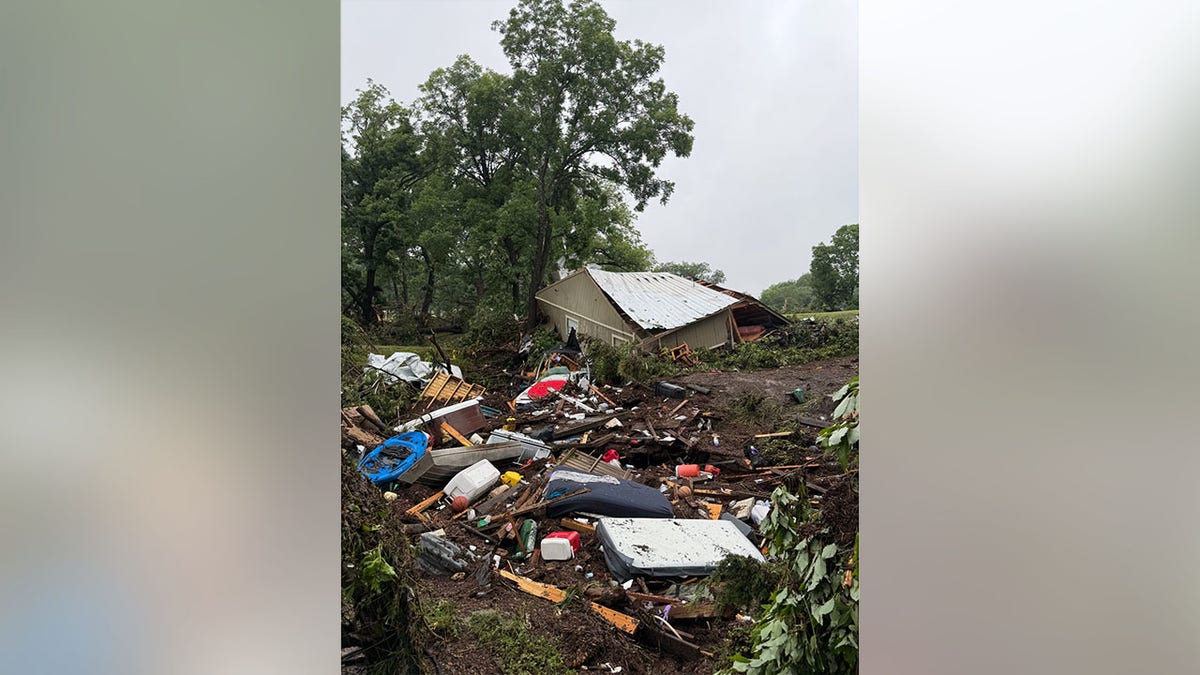
A ruined building is seen behind a pile of wreckage following extreme flooding in Texas. (Ashton Bolton)
“What we’re trying to do is make sure that in the moment, we’re trying to provide some relief and some efforts because at the end of the day, we understand they still have to go home to whatever they’re now calling home and whatever their new norm is,” Gomez said.
Ashton understands this and sees the potential it can have on Kerville’s current state of brokenness.
“I mean, we just need hospitality between one another and generosity, and that’s almost it,” he said. “Just being a family is all we need.”
Howard explained this sentiment in one word: Shalom. Leaning into the more traditional Hebrew route, it brings about a specific kind of peace that comes from being deeply connected not only to God and ourselves, but to those around us.
“In a time of trauma when Shalom is broken, when relationships are broken, when people are no longer connected in a way that they were, we suffer,” he said. That communal piece, that community piece, that faith piece allows us to live as God created us to live, deeply connected.”
